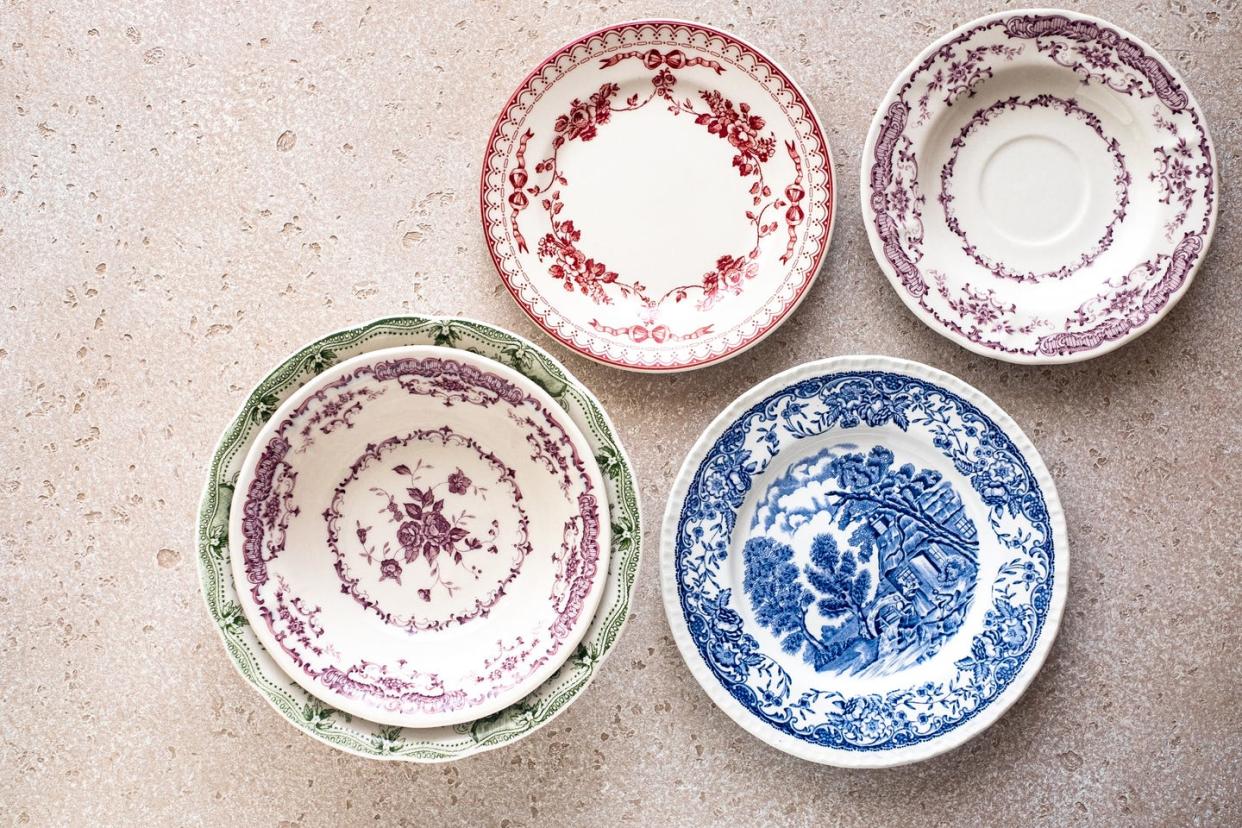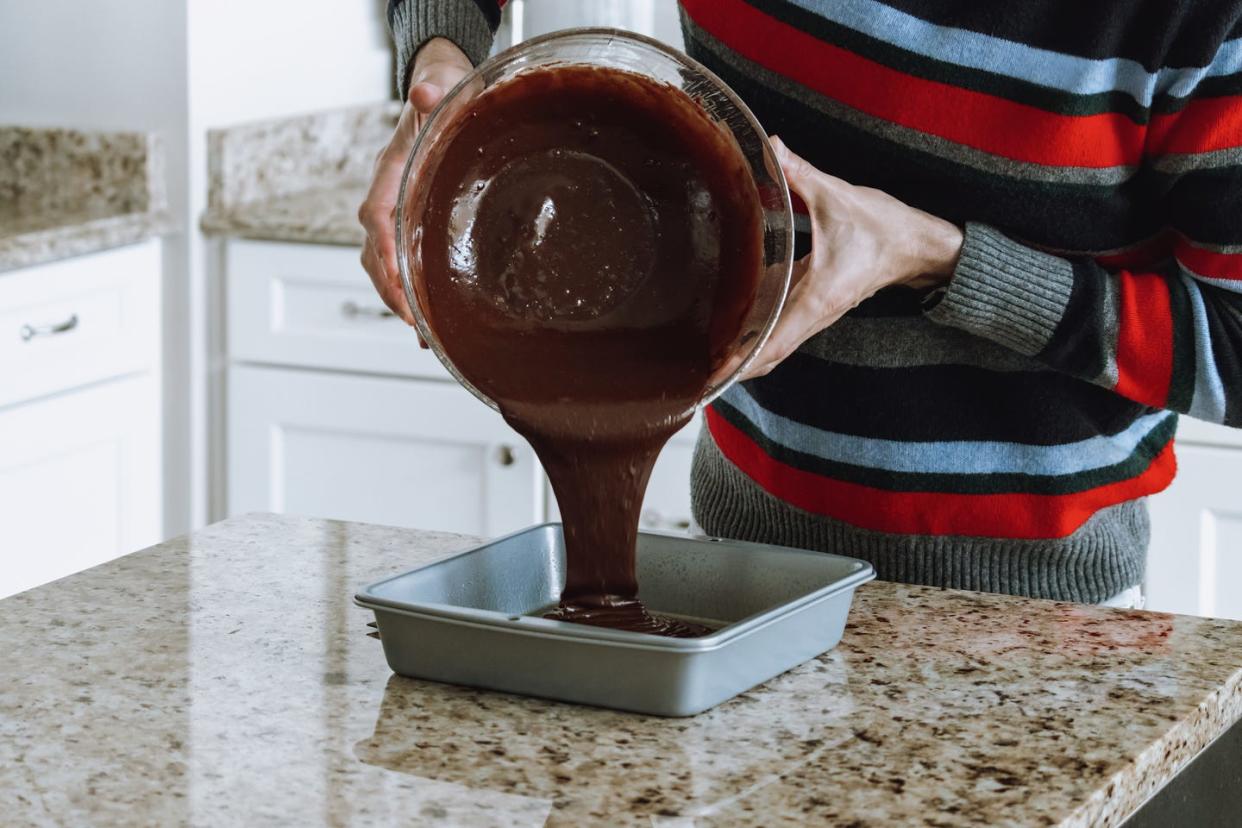Stop Putting These Things in the Dishwasher to Save Your Cookware
There's no denying that our lives have been made so much easier thanks to the almighty dishwasher. Few kitchen appliances have revolutionized the cleaning world like the dishwasher has when it comes to how we keep our homes tidy and safe. But while the best dishwashers are magical for their abilities to leave our drinking glasses and dinner plates free of spots and baked-on messes, the truth is, not everything in our kitchen is dishwasher safe.
Apart from learning the proper way to load a dishwasher and figuring out the best dishwasher detergent for your machine, it's equally important to know the cookware items that don't belong in the dishwasher. What happens if you don't? Long story short, things can get ugly quickly. In some cases you can fade your dishware, in others, your items may be permanently damaged or you may even damage your dishwasher.
To help you out, the Good Housekeeping Institute Home Care and Cleaning Lab is laying out the exact kitchen items and cookware pieces you're better off washing by hand to be safe. Keep these things far away from the dishwasher, and you'll be just fine:
1. Cast-Iron Skillet
You know how you have to season your skillet before using it? Well, when you put it in the dishwasher, you're basically undoing all of that hard work. There are a few different ways to effectively clean your cast iron without damaging the skillet, some involving vegetable oil and others involving salt. But as Carolyn Forté, executive director of the Good Housekeeping Institute Home Care & Cleaning Lab, stresses: "Your cast iron skillet should never be soaked in the sink or put in the dishwasher."
2. Wooden Utensils
The hot water and heat for drying in your dishwasher are too harsh for your mixing spoons, spatulas, or any other kitchen tool made of wood. Your utensils will likely warp, split and lose shape over time, which nobody wants.
3. Wooden Cutting Boards
Like the wooden spoons, hot water will cause the finish of your favorite wooden board to dull and possibly warp or split, says Forté. Instead, use a mixture of three tablespoons of bleach per quart of water to scrub it clean.
4. Grandma's Vintage Plates
If you were gifted the family china when you got married, be wary of exposing it to the hot water and detergents that can eat away at any gold trim or hand-painted details. To be safe, gently wash all of the dishes by hand to ensure they will live on for generations to come.

5. Garlic Press
They speed up supper, but you'll need to slow down to clean them. Since garlic is sticky in paste form, bits of it get stuck in the crevices. It can be a hassle, but chances are your dishwasher won't totally get rid of all the garlic residue. Wash yours by hand to ensure it's totally spotless for your next meal prep session.
6. Insulated Mugs
Overall, Forté advises that it’s best to check and follow the mug manufacturer’s directions to be sure auto dishwashing is safe. Some newer travel mugs are dishwasher safe, but your dishwasher could destroy the insulation on some, so it can be best to do a quick wash in the sink instead.
7. Bottles or Jars With Labels on Them
If you want to keep your pickle jar, just make sure you remove the paper label and any adhesive remnants first — those materials usually come off in the dishwasher and can get stuck in the filter, which might lead to more serious problems later (problems that cost way more to repair than the pickle jar is worth).
8. Aluminum Cookware
Cookware that is made of aluminum will become discolored and damaged. Best to just use a bit of elbow grease the next time you need to scrub your cake pans.

9. Cheese Grater
The cheesy goodness you just grated for mac and cheese may still be stuck in the holes even after a cycle in the dishwasher. Instead, use soap and a sponge or brush to wash it by hand and ensure today's cheddar doesn't mix with tomorrow's mozzarella.
10. Fancy Chef Knives
Since the nylon racks and tines in your dishwasher shouldn't be nicked, you should keep your knives far away from them, Forté says. Plus, when knives rattle around in the dishwasher, it can damage the blades, and wooden handles can split and dry out. But, if your dishwasher has a dedicated rack for knives, you're the exception to the rule. Plastic-handled knives may be safe to put in. Lucky duck!
11. Copper Pots, Pans, and Mugs
If you enjoy a tasty Moscow Mule in a copper mug as much as we do, you know half of the appeal is your cup's beautiful color. The thing is, the harshness of the dishwasher can cause any copper surfaces to dull or fade, which is why it's better to wash your copper mugs, pots, and pans by hand to be safe.
12. Non-Stick Cookware
Many non-stick cookware brands say it's safe to wash in the dishwasher. It is occasionally, but Forté says to keep in mind that, over time, it can degrade the non-stick finish properties. If you want the cookware to last, wash it by hand.
13. Crystal
You can check with the manufacturer — some crystal is dishwasher safe. In fact, some dishwashers even have crystal cycles. But for crystal, it's best to think twice. Hot water, especially hard water, and detergent can leave it cloudy and spotted. Load it incorrectly and it can emerge chipped and cracked. Antique and hand-painted crystal should always be hand-washed to be safe.
You Might Also Like
